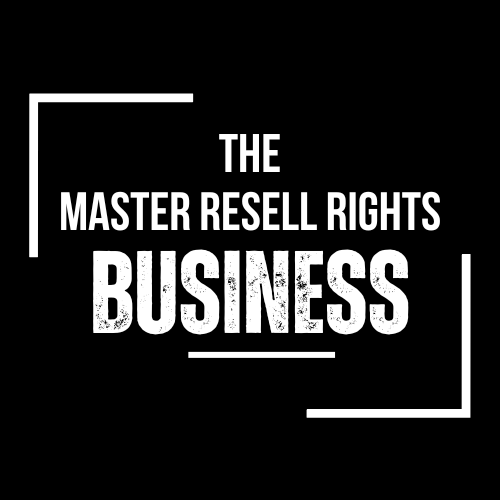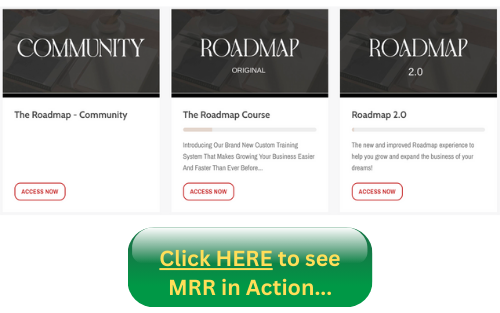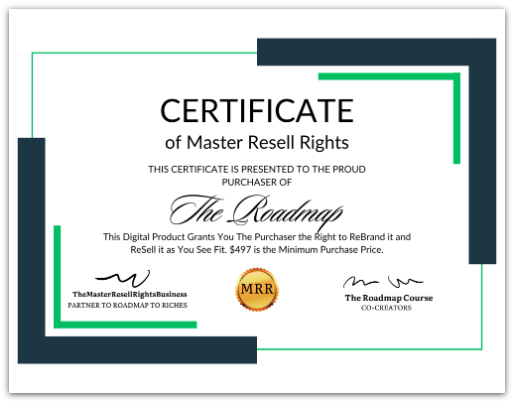
Is Master Resell Rights A Pyramid Scheme?
Is Master Resell Rights A Pyramid Scheme?
You might be wondering if Master Resell Rights (MRR) is just a fancy term for a pyramid scheme. It’s a legitimate question, given the seemingly similar structures. But are these similarities deceptive?
In this article, we’ll unpack the truth. We’ll delve into the nitty-gritty of MRR and pyramid schemes, highlighting what sets them apart and where they overlap. By the end, you’ll have a clear understanding of these two models, enabling you to make informed decisions about your online business endeavors.
Let’s get started and clear up any confusion about MRR and pyramid schemes.
What is Master Resell Rights?
You might be wondering, what exactly is Master Resell Rights?
Simply put, it’s a business model where you buy the rights to a digital product, then resell that product as your own, pocketing 100% of the profits.
This model is especially prevalent in the digital product industry, with items like eBooks, online courses, and software often sold under MRR.
Understanding the Concept of Master Resell Rights (MRR)
In your journey to understand the concept of Master Resell Rights (MRR), it’s crucial to grasp that this business model allows you to purchase and resell digital products without the need for recruitment, unlike pyramid schemes or MLMs.
- Product Purchase: You buy the rights to digital products like eBooks, software, or online courses.
- Reselling: You’re then free to sell these products under your own brand, retaining all profits.
- No Recruitment: Unlike MLMs, MRR doesn’t involve recruitment or complicated commission structures.
But remember, not all MRR opportunities guarantee success. Some might sell low-quality products or make unrealistic profit promises. So, always research the product quality, the seller’s reputation, and the potential market before diving in.
MRR isn’t a get-rich-quick scheme, but with effort and smart strategies, it can work for you.
Common Misconceptions About MRR
It’s essential to debunk some common misconceptions about Master Resell Rights (MRR).
You might think that high profits indicate a scam, or you may mistake MRR for Multi-Level Marketing (MLM).
And no, contrary to what some believe, not all reselling is part of a pyramid scheme.
High Profits Equal Scam
Despite common misconceptions, high profits from Master Resell Rights don’t automatically label it as a scam. You might’ve heard that if something seems too good to be true, it probably is. But with MRR, earning high profits is a real possibility and it’s entirely above board.
Here’s why:
- Single Purchase, Multiple Sales: With MRR, you’re buying a product once and selling it multiple times. This allows for high profit margins.
- Quality Products: High profits are attainable when you’re selling quality products. It’s not a scam, it’s just good business.
- Legit Business Model: MRR is a legitimate way to make money. It’s not about recruiting others but directly selling to customers.
Confusing MLM with MRR
You might be wondering if MRR is the same as MLM, but they’re actually two distinct business models.
MLM, or multi-level marketing, involves recruiting people to sell products, while MRR, or master resell rights, allows you to purchase the rights to resell a product directly to customers.
With MRR, you’re not recruiting; you’re reselling. The misconception arises because both involve selling products.
However, in MLM, you’re part of a multi-tiered sales structure where you recruit others to sell.
MRR is a more straightforward model: you buy, you sell, you profit.
It’s crucial to understand these differences to avoid misjudging MRR as an MLM or a pyramid scheme.
MRR is a legitimate business model, provided you choose quality products.
All Reselling is a Pyramid Scheme
Don’t let the misconception that all reselling is a pyramid scheme deter you from exploring MRR’s potential. It’s crucial to understand that pyramid schemes focus on recruitment, not sales, unlike MRR.
MRR (Master Resell Rights): In MRR, you buy a product’s resell rights and sell it as your own. The profits come from direct sales, not recruitment.
Pyramid Schemes: These illegal schemes focus solely on recruiting new members, with profits largely generated from these recruitments, not product sales.
MLM (Multi-Level Marketing): MLM does involve recruitment, but it also revolves around actual product sales, making it different from pyramid schemes.
Understanding these differences helps debunk the myth that all reselling equates to pyramid schemes.
What is a Pyramid Scheme and MLM?
In the world of business, it’s crucial for you to understand what a pyramid scheme and MLM are before diving into any venture. A pyramid scheme operates on the premise of recruiting others to make money, often void of a real product or service. It’s essentially a game of musical chairs. When the music stops (recruitment stalls), those at the bottom lose out, which is why pyramid schemes are illegal in many places.
MLM, on the other hand, introduces real products or services into the mix. It’s not exclusively about recruitment. However, the emphasis often leans more towards recruitment than actual sales, making it a controversial yet generally legal business model.
So, where does Master Resell Rights (MRR) fit into this? MRR is a business model where you buy the rights to a product, then resell it while pocketing the profits. It veers away from pyramid schemes and MLMs because it doesn’t hinge on recruitment. Your earnings come from your ability to resell a product, not from enlisting others to do the same.
Key Differences Between MRR and Pyramid Schemes/MLM
You may wonder how Master Resell Rights (MRR) differs from pyramid schemes and Multi-Level Marketing (MLM). It’s essential to understand the key differences in investment structure, profit source, sustainability, and legal standing.
This comparison will clear up any misconceptions and help you make an informed decision about your business venture.
Investment Structure
Despite the misconceptions, it’s crucial for you to understand that in an MRR business model, you’re buying a product with the intention of reselling it, unlike pyramid schemes or MLM where your investment often leans more toward recruitment.
To help you understand, let’s break it down:
- MRR (Master Resell Rights): You buy a product, typically digital, with the intent to resell it and keep the profits.
- Pyramid Schemes: Your investment is primarily a joining fee, with the main income stream being recruitment of new participants, not product sales. These are typically illegal.
- MLM (Multi-Level Marketing): You may buy a starter kit or inventory, but a significant portion of your potential income comes from recruiting others into the scheme.
Essentially, the core difference lies in the source of your income – product sales (MRR) vs. recruitment (MLM and pyramid schemes).
Profit Source
Understanding where your profit comes from is a key aspect of distinguishing MRR from pyramid schemes and MLM.
With MRR, you’re buying the rights to a product and reselling it, keeping 100% of the profits. It’s a straightforward transaction based on the product’s value and demand.
In contrast, pyramid schemes primarily generate money through recruitment, not sales. They’re often illegal due to their unsustainable structure.
MLM stands somewhere in between, allowing for profit from both sales and recruitment. However, in many MLM models, recruitment often overshadows the sales aspect.
The key takeaway is this: if your profits rely heavily on recruitment rather than actual sales, you may be veering into pyramid scheme territory, not MRR.
Sustainability
In the realm of business sustainability, it’s crucial to grasp the key differences between Master Resell Rights (MRR), pyramid schemes, and Multi-Level Marketing (MLM).
- MRR is a sustainable model if the product you’re selling is in high-demand. You buy the rights to resell a product, keeping all profits from sales. There’s no recruitment involved, hence, your income doesn’t rely on an ever-growing network of sellers.
- Pyramid schemes rely solely on recruitment, making them inherently unsustainable. Without a constant influx of new recruits, they collapse.
- MLM can be sustainable but usually requires consistent recruitment to maintain income flow. Your earnings come from your sales and a percentage of sales from those you recruit.
Understanding these differences can help you make informed business decisions.
Legal Standing
You might be wondering about the legal standing of MRR and how it differs from pyramid schemes and MLM, so let’s delve into the details.
MRR is generally considered legal because you’re selling a legitimate product you’ve bought the rights to.
Pyramid schemes, conversely, are usually illegal due to their recruitment-based structure, promising earnings predominantly from signing up more recruits rather than product sales.
MLM, on the other hand, exists in a legal gray area. While it’s allowed, it often comes under scrutiny for its business practices, particularly if the emphasis is more on recruitment than on genuine product sales.
Essentially, the key difference is that with MRR, your profits come directly from product sales, making it a straightforward and legal business model.
How to Safely Engage in MRR
To engage in MRR safely, you’ve got to do your due diligence. This includes understanding the license agreement thoroughly and choosing to work with reputable sources.
Sticking to these guidelines can help you navigate the MRR landscape without falling into pitfalls.
Do Your Due Diligence
Before diving into the world of Master Resell Rights, it’s crucial that you do your due diligence. Engaging safely in MRR involves careful examination and research.
- Research the Product: Don’t just buy rights to any product. Ensure it’s of high quality and something people will want to buy.
- Investigate the Seller: Just as you’d with any purchase, look into the reputation of the seller. Are they known for delivering on their promises and providing reliable products?
- Understand the Market: Do a thorough market analysis. Is there a demand for the product you’re planning to resell?
Understand the License Agreement
Understanding the license agreement is another critical step in safely engaging with MRR. Before you purchase, carefully read through this agreement to know what you can and can’t do with the product. This helps you avoid potential legal issues in the future. Remember, every MRR product comes with its own set of rights and restrictions.
For instance, some might allow you to alter the product or its branding, while others may not. You might be free to set your own price, or a minimum price might be stipulated. Ignorance isn’t an excuse in legal matters, so take the time to understand the rules and abide by them.
This way, you safeguard your business as you venture into the MRR market.
Choose Reputable Sources
When you’re diving into the MRR market, it’s crucial that your product source is a reputable one. Here are three steps to ensure you’re engaging safely in MRR:
- Do Your Research: Look into the product you’re buying. Is it high-quality? Does it offer real value to your potential customers?
- Check Reviews: Look for reviews of the product and the seller. If many customers are unhappy, it’s a red flag.
- Seek Recommendations: Reach out to others in the MRR community. Can they recommend reliable sources?
Conclusion
In conclusion, MRR isn’t a pyramid scheme or MLM – it’s a legitimate business model where you buy, sell, and profit from digital products. However, like any business, it requires strategic planning and execution.
Arm yourself with knowledge, understand the nuances, and tread carefully. MRR can be a profitable venture, but only if you steer clear from fraudulent practices and focus on providing value to your customers.
Your success ultimately lies in your hands.
–The MRR Business Authority Team



Valuable information. Lucky me I discovered your web site accidentally, and I’m shocked why this twist of fate didn’t happened in advance! I bookmarked it.